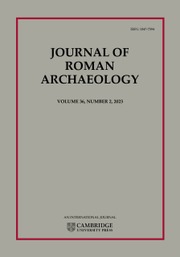Article contents
Notes on the elogium of a benefactor at Pompeii
Published online by Cambridge University Press: 11 October 2019
Extract
The rediscovery in the summer of 2017 of a large monumental tomb of unusual form outside the Stabian Gate at Pompeii caused an immediate sensation, and the swift initial publication by M. Osanna in JRA 31 (2018) of the long funerary inscription fronting the W side of the base, facing the road, has been welcomed gratefully by the scholarly community. The text — at 183 words, by far the longest funerary inscription yet found at Pompeii — records a series of extraordinary benefactions by an unnamed local worthy, beginning with a banquet held on the occasion of his coming-of-age ceremony and continuing, it seems, well into his adult life, up to the final years of the town when the monument was built. As Osanna and others have recognized, the inscription, which seems to allude to an historical event (Tac., Ann. 14.17), the riot between Nucerians and Pompeians around Pompeii’s amphitheater in A.D. 59, provides valuable if ambivalent new information relevant to the demographic, economic and social history of Pompeii that will require full discussion in a variety of contexts over time. The present collection of remarks, a collaborative effort, is offered in the spirit of debate and is intended as an interim contribution toward a more complete understanding of the text.1
Information
- Type
- Articles
- Information
- Copyright
- Copyright © Journal of Roman Archaeology L.L.C. 2019
- 3
- Cited by

